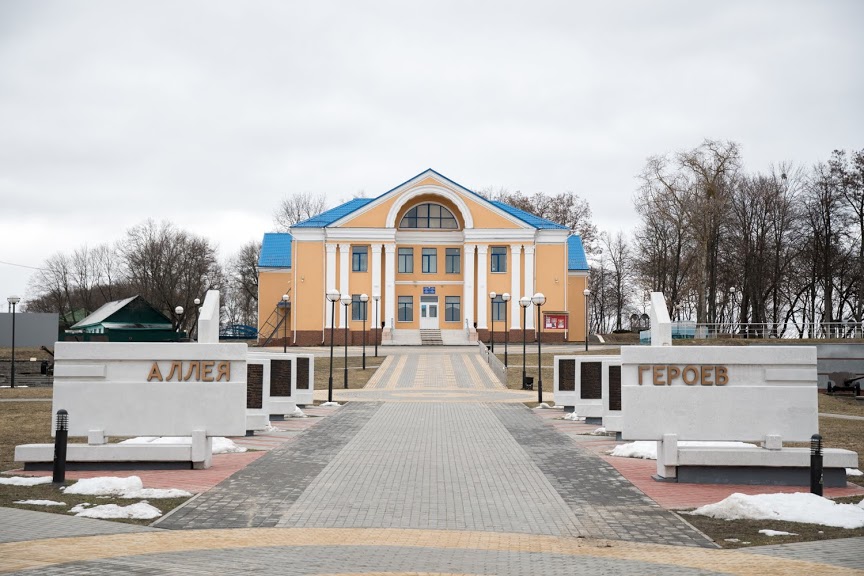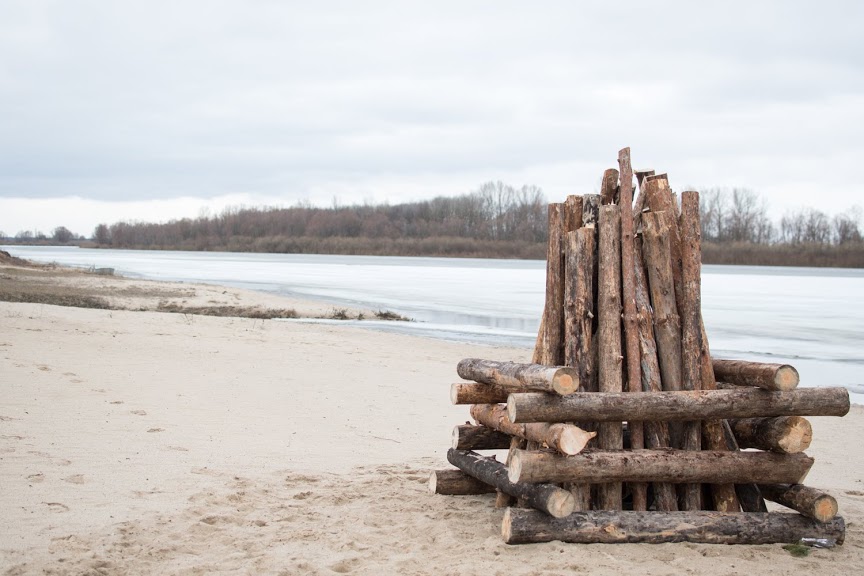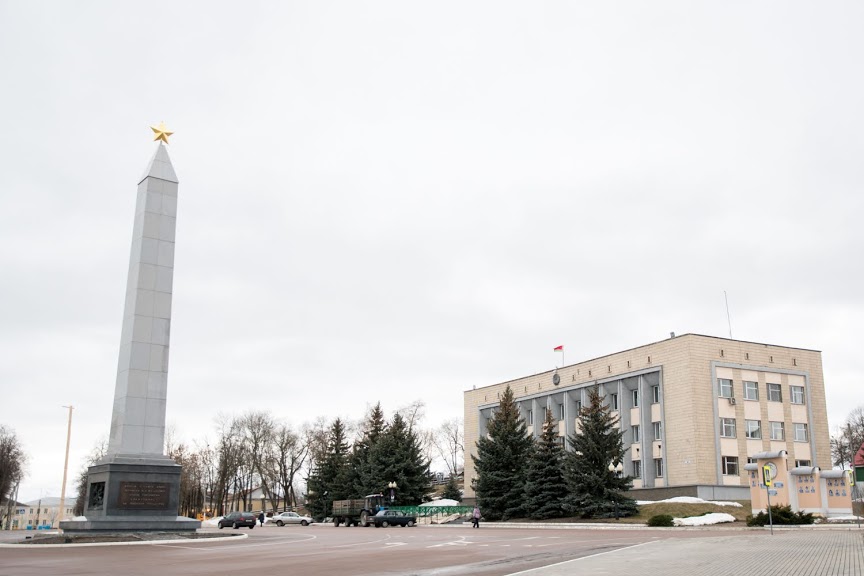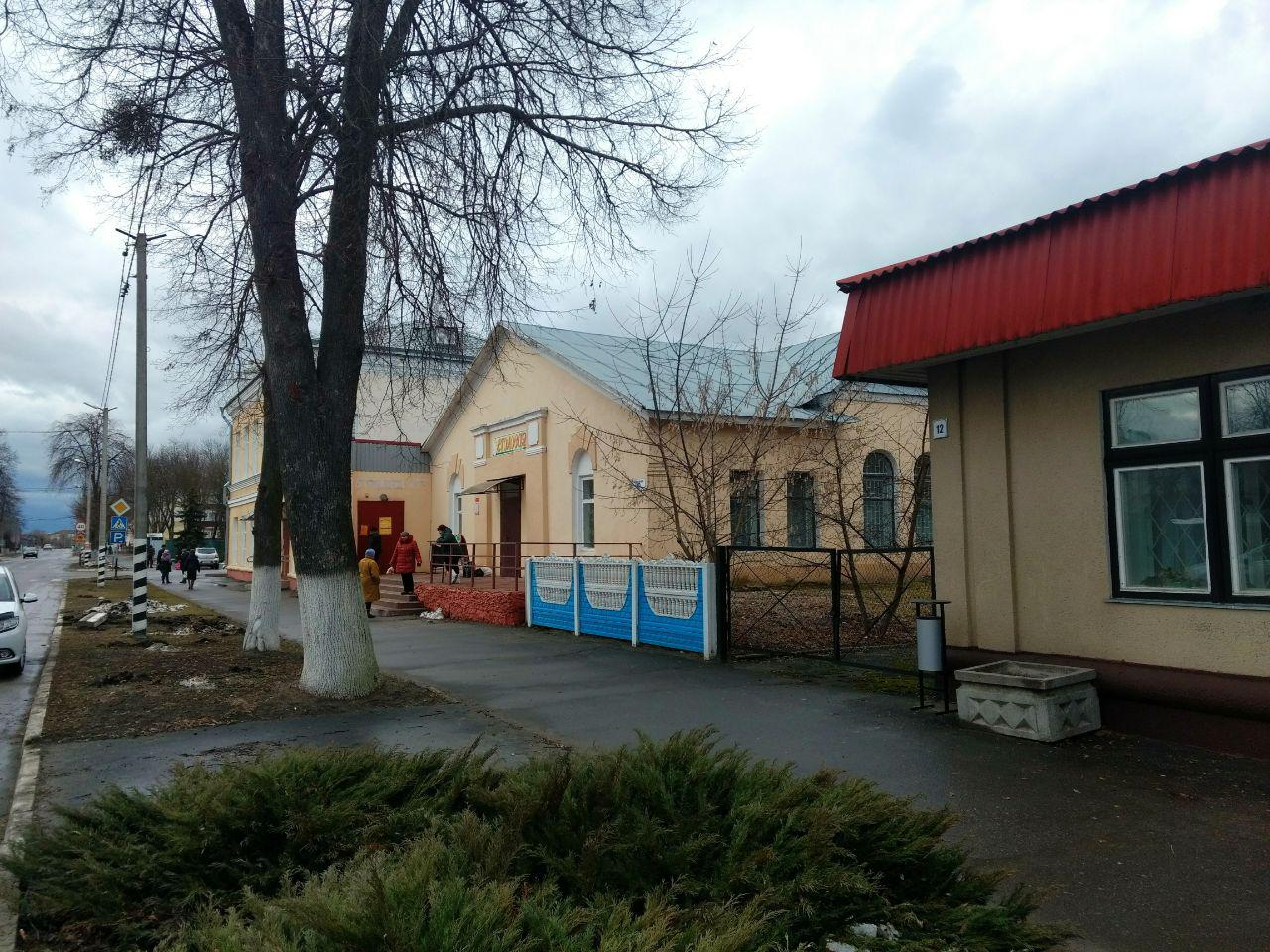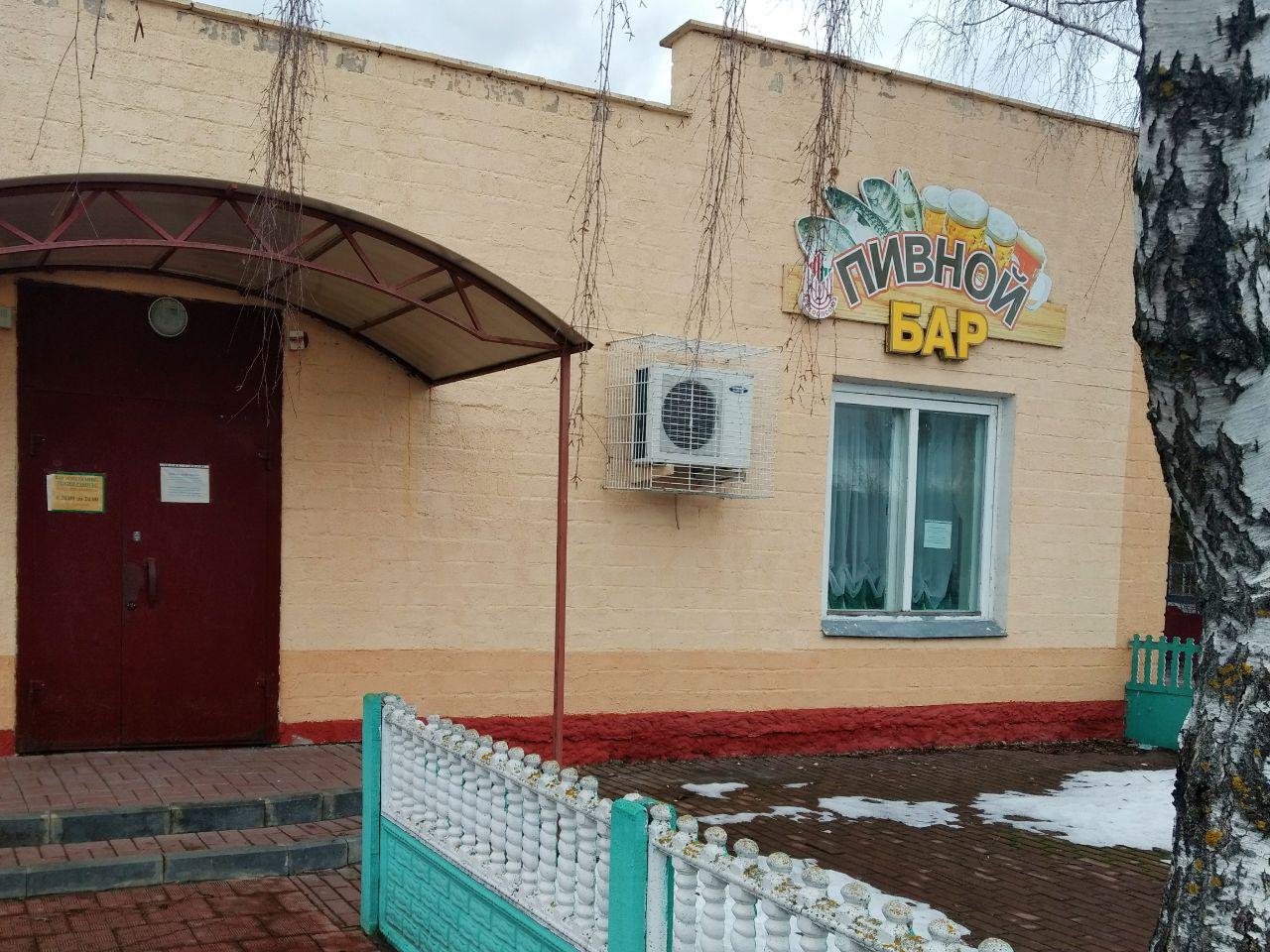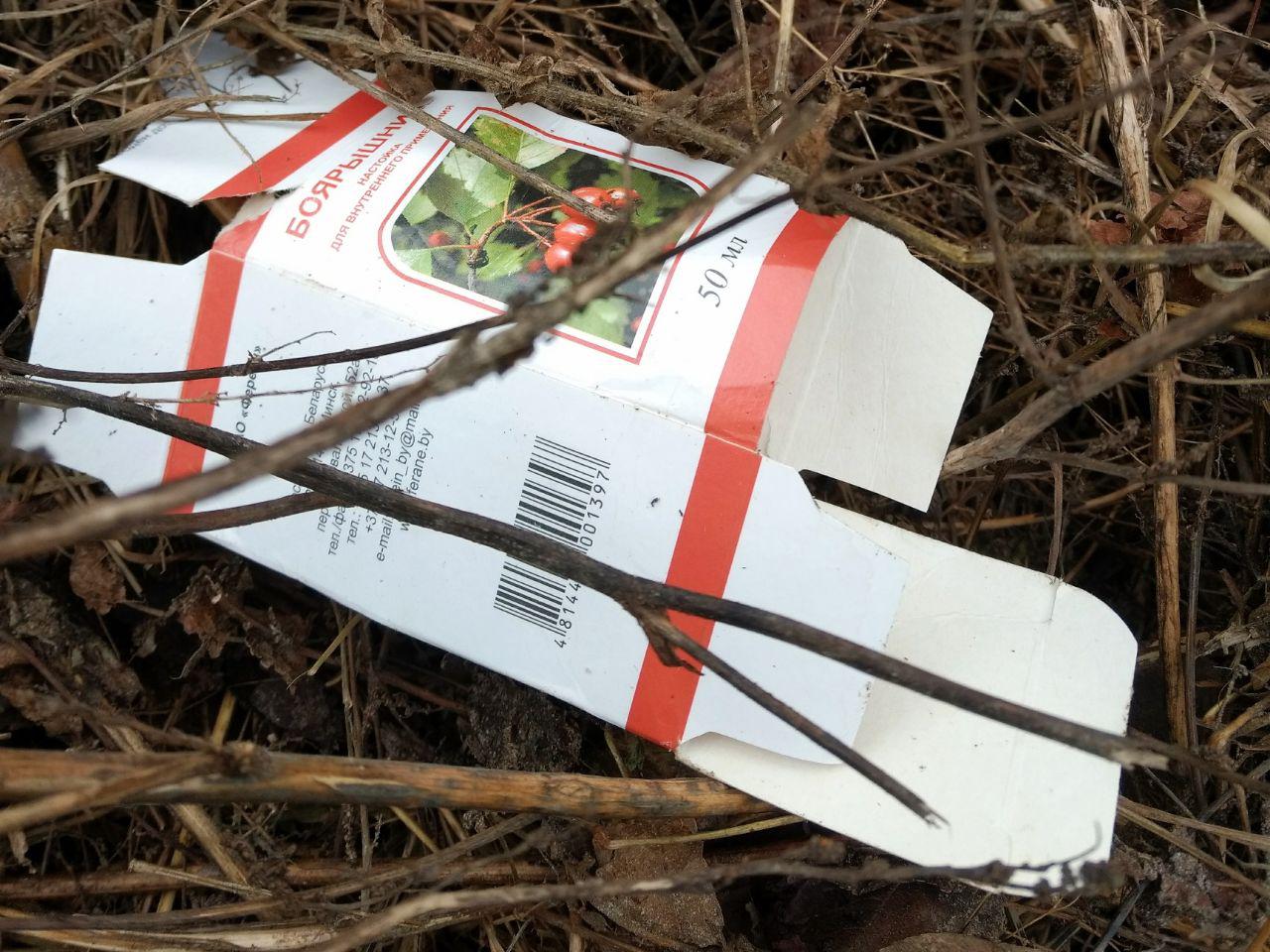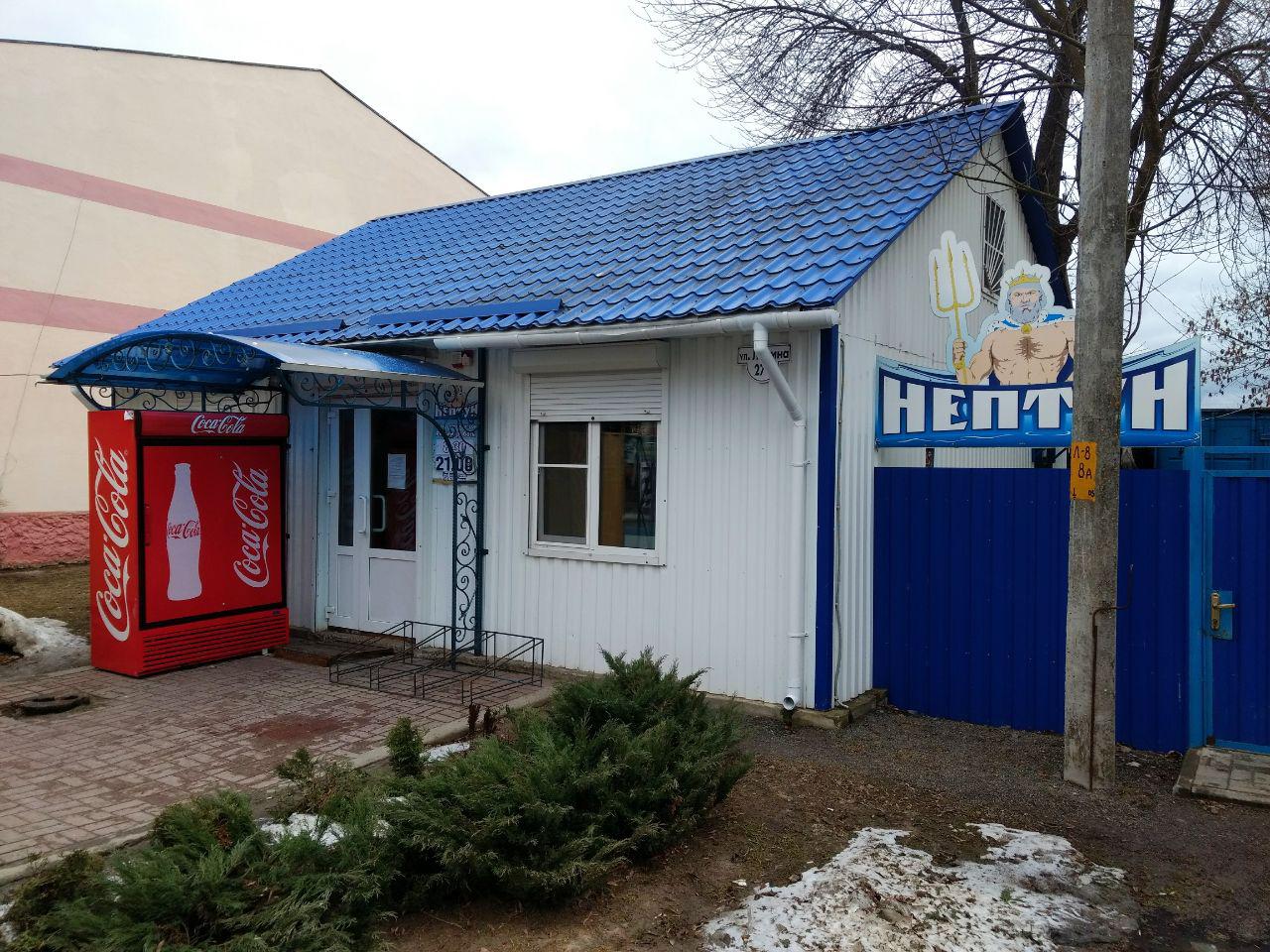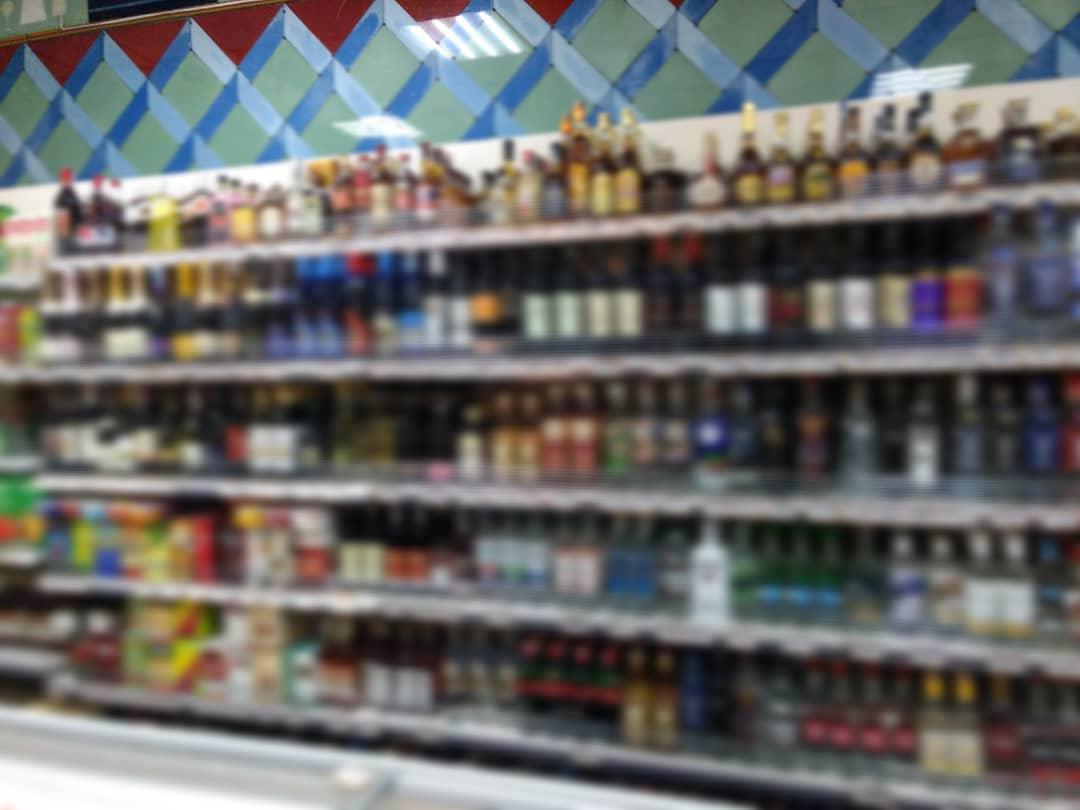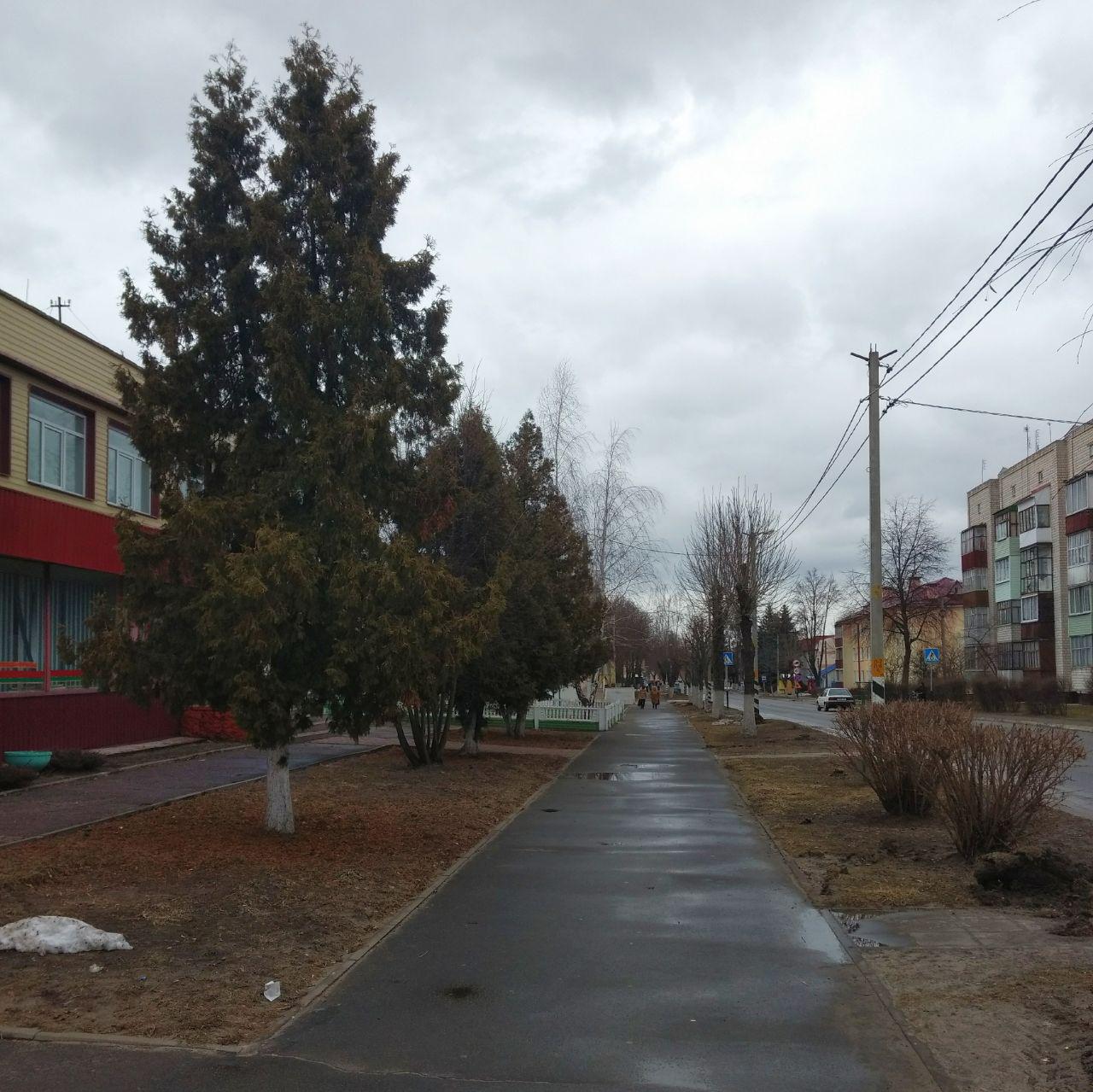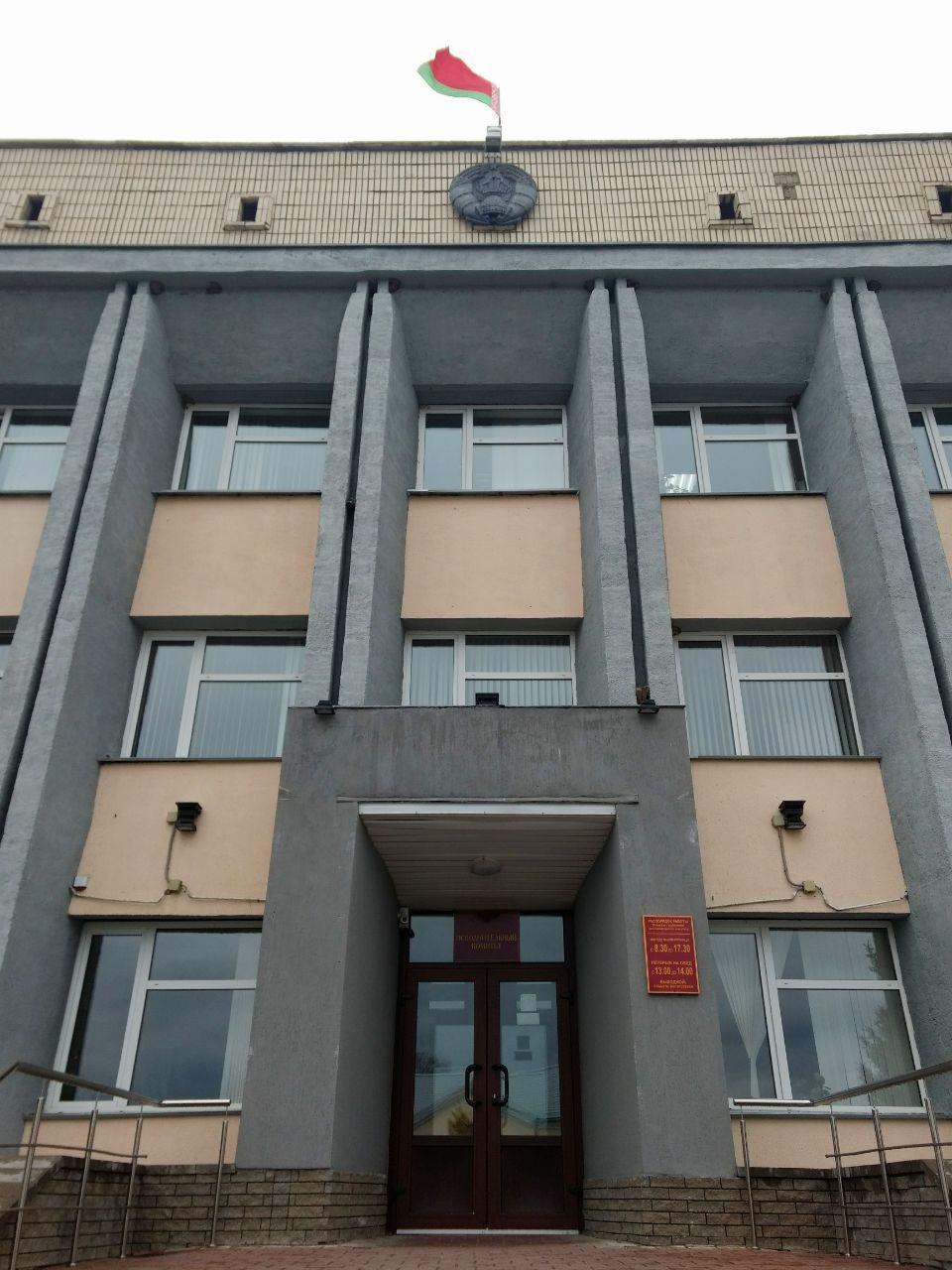“Living hurts”: Doom and Gloom on a ‘Dry Day’ in Loyev
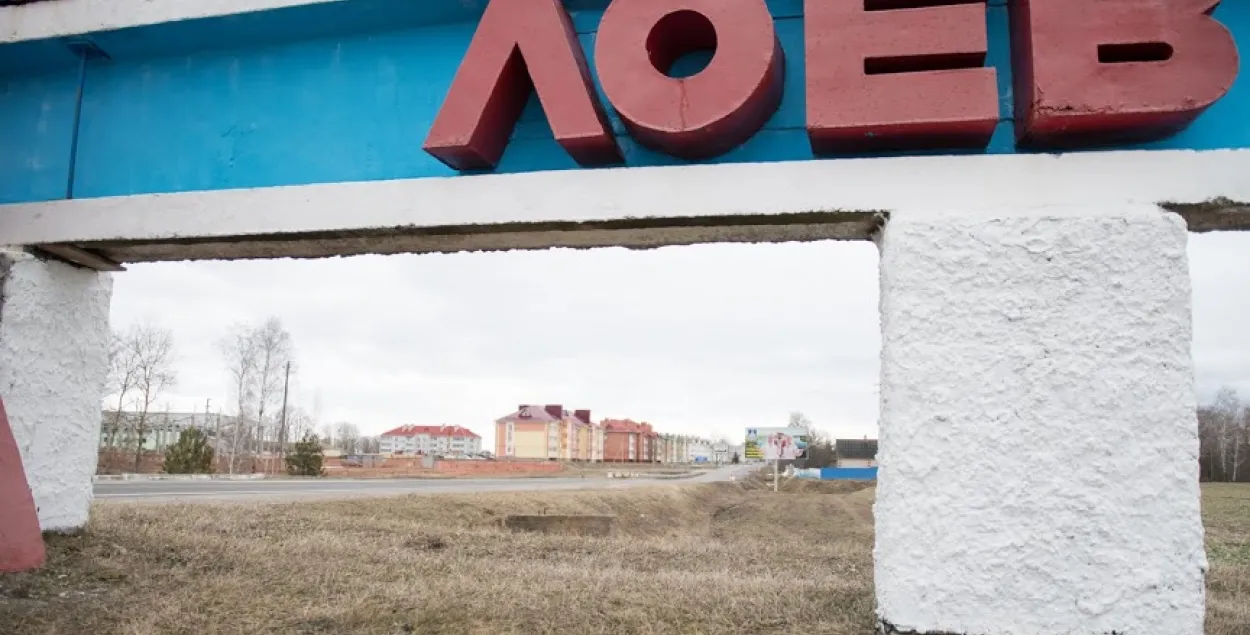
Loyev / Euroradio
On March 1 Loyev region saw the first of eight ‘Dry Days’ planned for 2019. The sale of spirits was limited in shops from 00:00 to 24:00. The ban was timed to coincide with the ‘International Day Against Drug Abuse’.
Euroradio correspondent Aleksey Karpeka plunged into the epicentre of ‘Dry Days’ to see how the locals of the regional centre were going to cope for a whole day without alcohol.
“All you have to do is drive to the next village – and you can buy all you want”
The first thing you see driving into Loyev are new brick-built three-storey blocks. But as you get further into the town the new buildings disappear and all that remains is the legacy of the Soviet Union, a couple of pre-revolutionary buildings and some private cottages. On the surface, the town gives the impression of being cared for, but a bit empty. The town is situated not so far off from the areas people were evacuated from because of the Chernobyl NPP accident. Loyev was lucky though, the radioactive pollution avoided it.
“They are taking these measures, but at the end of the day they get the opposite result. Because the more you prohibit it, the sweeter the forbidden fruit becomes”, says Ivan, having a smoke by the side of Caterpillar bulldozer. “If it’s one of these ‘Dry Days’, you get more drunks than sober folks. And there’s not even any point in stocking up in advance. All you have to do is drive out of the district to the next village where there’s a shop – and you can buy all you want. They even sell it in the cafes”.
Ivan’s colleagues are assembling a stage in front of the Loyev Regional Executive Committee building on the central square, dragging along flooring and hanging up banners. Tomorrow is Shrovetide. The Dnieper embankment is the traditional place for celebrating it.
According to the WHO, Belarus is one of the stablest top drinking countries of the world. From 2008 to 2014 it even came in at a first place. The Ministry of the Interior on numerous occasions brought up the question of banning the sale of alcohol at night. In 2018 there was yet another attempt to carry out an “experiment” in Minsk and a number of regional towns. But then Alexander Lukashenko demanded that the limitation be abolished; in the end, it lasted less than two days. The night-time boozers were saved.
Loyev is a smallish town in the Banks of the Dnieper right opposite the border with Ukraine. Population 6,500. In 2005 they marked 500 years since the first mention of Loyev in the chronicles. 14 years later the stage in the building belonging to the department for educational outreach is still decorated with the banner in honour of the 500 years anniversary.
They light heaving great bonfires of logs on the sandy riverbank. People will come and eat pancakes and drink spirits. The cold spring wind will kindle the flames. The damp heavy sand will stick to your soles and preserve your footprint. That’s all for tomorrow though. But today it’s – ‘Dry Day’.
“The former chief of police was a nasty piece of work, he didn’t even let us have a drink on holidays”
“I’m not drinking today, I have to work again tomorrow” Ivan continues. “But tomorrow will be Shrovetide, so we’ll be able to drink as per normal. Before, though, you couldn’t even celebrate the holiday properly. We used to have a police chief – Vladimir Bukhavtsov was his name – he didn’t even allow drinking on holidays. A nasty piece of work, he were”.
Former Chief of the Loyev ROVD [District Department of the Interior – Trans.] Vladimir Bukhavtsov, was a well-known figure. A zealot when it came to fighting drunkenness. He would drive around town himself with his police officers, patrolling the streets. There was even an article about him on the Bielorus Ministry of Interior website under the title “Lieutenant-Colonel ‘Good Evening’”.
“The main part of crimes committed were thefts. And the principal contingent were the unemployed and chronically drunk. People drink from idleness. They don’t want to work for a firm or for themselves. At Shrovetide they were outraged more than anything else that the police was stopping them drinking on the square. They complain that the drink there is dear. Why drink at all then if it’s dear? Order some tea and have a chat with people”, said Bukhavtsov about the Loyevites who were unhappy with him and the complicated arrangements to do with drinking. Then, there was the case of the patrol stopping a tipsy pensioner in the street and giving him a fine.
Nowadays Vladimir Bukhavtsov is no longer the Chief of the Loyev ROVD – he has been transferred to Chechersky district in the same capacity. We can only speculate as to whether the transfer was for his merits or his failings.
Over the last year 36 out of the 122 recorded crimes – a little over a quarter – were committed in a state of alcoholic inebriation. In terms of statistics for Gomel oblast’, this is an average figure.
“There are a lot of people who drink, it’s especially the young who are becoming drunkards”
The place where they meet is by the little shop and Canteen No.1 in Loyev. That’s where the inhabitants discuss the latest news. Alexander Lukashenko’s “Serious Talk”, for example. I go up to three women talking amongst themselves and introduce myself. The grey-haired harpies abruptly fall silent and then start angrily bawling at me:
“You’ll go and write something bad about us again. You are the opposition! We know you! Your journalist asked the President questions [the journalist Zmiter Lukashuk put some serious questions to Lukashenko during the “Serious Talk” broadcast]. We’re not going to tell you anything. We don’t drink. But a drunk will always find a drink”.
Windswept beige coloured blocks of flats, the windows on the ground floor broken and boarded up. The general store is under repair. Six men, blue with the cold, are raking and sweeping opposite the Belpochta building, mixing the wet earth with snow. The streets are swept clean. Nice and tidy Belarus.
The local market is empty and there is a biting wind. The stalls are empty, chrome taps for bathrooms hanging on hooks. Next door there’s the “Spatkanne” bar, but it’s closed. Working hours: from 8pm -12pm. The bar can be hired for a works party, weddings and other events. The birch trees nearby lash their branches against their trunks.
“These bans on drinking are a good thing. There’s a lot of drinking going on, especially young people. It’s terrible how many there are drinking and smoking. Measures should be brought in. Even harsh ones”, pensioner Viktoriya, a former teacher, opines. “No doubt about it. Especially the young people. They’re ruining themselves with drink. I recently saw a woman with a pushchair with a bottle and a cigarette in her hands. What more can we do about it? Maybe what we need is the kind of ban that will change things. Maybe one day people will sober up?”
“There’s always a steady flow of clients here for liqueurs”
Standing around the pharmacy there is a lone man in a green padded jacket sucking on a bottle of Boyaryshnik, just as if he were nursing from his mother’s breast; he finishes his vodka and then vanishes into the cold air. Strewn over the ground are soft, opened packs of ‘Cordial’. Must be nervous people with cardiac problems that left them there. The pharmacy only sells a maximum of two phials per person.
“There’s no special rush today. Business as normal. And the same faces as usual. There’s a continual demand for nastoiki [infusions]. A knock-down price – 80 kopecks per phial”.
Two little bottles of “Boyaryshnik” contains 70% pure alcohol and is the equivalent of 200 grams of vodka. Not a bad start for the “Dry Day”.
The shops in Loyev are empty and sad-looking. There’s no “ogonyok” warming your hands. What’s interesting though is that even in small shops the shelves are glutted with alcohol. Only two kinds of juice, but when it comes to spirits, there’s something for everyone: Limoncello, Starka, Krupnik and an ocean of various liqueurs and syrups. Alcohol is profitable. People drink when they feel good but the same goes for when they’re down. People drink whatever the circs.
The town is frozen by the spring wind. The thin snow cuts into your face like sand. Everyone one is drinking as per normal. Everyone has some.
The ‘Neptune’ shop with its white-haired god, naked down to the waist. Inside there’s a constant smell of dry-cured and smoked fish. The saleswoman in a blue apron is embarrassed to say that yesterday, that is on the eve of the “Dry Day”, people were buying “as normal”.
“I didn’t notice any special rush. They bought everything: brandy, vodka, wine, berry liqueurs, infusions. Each according to his taste, and what they could afford. People drink a lot. But show me the place where they don’t”.
There’s a problem with the shops in Loyev. “Rodny kut” has closed down, its empty shelves are scary. They promised to open “Evroopt” soon and even took on staff. But so far there are only privateers there.
“It’s all a load of b*lls, one day – that’s no time at all”
In the provinces there’s no money. But a rouble or two will always be found “for a booze up”. there’s no work and the young are leaving. The old stay behind and struggle on – where would they go anyway?
An elderly man in a grey jacket, angry and sober, hobbles along past the shops. There’s a notice on all the doors saying that today alcohol is not sold. He answers questions angrily, the wind breaking up his speech. His nose and eyes trickle.
"It’s all a load of b*lls, one day is no time at all. I can’t buy drink today. And the bar’s expensive. But do you think that’s going to stop me? I’ll get myself invited somewhere".
The dark, bare trees are swollen from the frost and damp. Wind-swept, they stand there silent, swaying the stumps of their branches and look forlornly at the sky. In towns like these the loneliness of humans is akin to the loneliness of the tree that the bird has just forsaken.
“It hurts when I drink. It hurts when I smoke. Living hurts”
In the district consumer society canteen the radio is relaying a speech by Lukashenko – that “Serious Talk” that lasted 7 hours 25 minutes:
“…even in terms of people’s incomes we’re worried less by Minsk and the oblast centres or even the raion centres (where one way or another we will solve the problems), as by the big towns of 100,000, where heaps of problems have piled up and we supposedly haven’t noticed it. How can these people cope? They need helping. So I decided to set up a project taking Orsha – a typical average town – as a basis…”
Inside they pour drinks – the “Dry Day” doesn’t affect canteens. The clients drink. It’s a bit like a wake. A man in a grey woollen jumper goes outside for a smoke. His name is Vladimir. He’s hurting.
“You’ve got to understand, Lyuda. It hurts when I drink. It hurts when I smoke. Living hurts”, he tells the canteen girl. Lyuda nods in silence. Vladimir draws on his cigarette.
He knows about the “Dry Day” – and sees no sense in it.
“I’ve been drinking for two days now, but I’ve got a reason. My mother died. People in Loyev drink, they drink heavily. The young people are leaving for Russia. And the old folks here are just surviving. These bans on alcohol are rubbish. But drunkenness and alcohol is a scourge. We need to try something different, we have to motivate people not to drink”.
The majority of the inhabitants of Loyev don’t even notice the “Dry Day”. They’re not interested, they see the notice on the door and walk by. Albeit with a sad look. They’re serving it in bars and for those who can’t afford it, there’s always the consolation: “A thirsty man will always find drink”.
The workers are finishing the stage. Today is the official “Dry Day”, tomorrow the official start of spring. Folk dancers will be performing and local officials will be giving speeches on the stage. And just across the road, next to the Avenue of Glory to Fallen Heroes, the locals will be feasting on hot pancakes washed down by a ‘miniature’ bottle of vodka.
Shrovetide is older than the government represented by these officials. Older than their bans. Older than the Soviet system that reared them. Shrovetide, bonfires on the banks of the Dnieper, pancakes and setting fire to the symbols of winter – all of that is much older than even Loyev itself.
The gloomy banks of the Dnieper on the first day of March. The ice on the river hasn’t yet completely melted. Tomorrow, the bonfires, flaming skywards, sparks flying and hissing with tar, will accomplish their fate. And paganness along with drunken stupor will triumph. And in the hazy white sun or under the moonless dark sky jollity blurred by alcohol will seize hold of all and sundry.
They’ll be frying pancakes, the bonfires will burning away and the vodka-glasses will be filled. And winter will come to an end.
